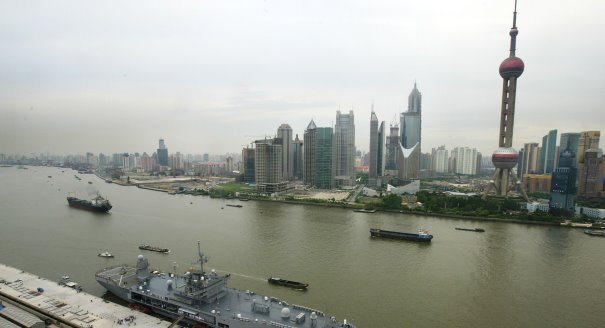What is crucial in the Syrian case is the fact that Russia realized for the first time that the United States is not always intent on military intervention abroad, and that the U.S. administration’s position can differ from that of the Congress and NPOs. Indeed, President Barak Obama was elected to terminate excessive military intervention abroad and his administration has been using mostly verbal means for influencing situations abroad (“soft intervention” à la Joseph Nye) instead of physical ones.
This does not mean that the United States is heading toward a decline. The United States becomes inward-looking in an economic depression (Nixon and Clinton administrations were typical examples), and its economic dynamism for future growth is still larger than that of China, the EU, and Japan.
On the other hand, we have to remember that the U.S. society is inherently shy about undertaking a military operation abroad, especially when it is not directly related to its own well-being. The U.S. administration had great difficulty in rallying the society toward taking part in the two World Wars.
Now things are even more complicated because part of the Republicans (for some reason they are traditionally considered to be “hawkish”) vehemently advocate small government and a smaller army. So, the U.S. society will remain inward-looking even after an economic recovery, and in foreign policy its administration will have to resort to a “concert of powers” to a larger degree, though relying upon the current alliance systems.
Concert of powers is an old familiar thing in Europe, and it is now being fermented in the Middle East, but in Asia things are even more nebulous. In East Asia the U.S.-Japan alliance (it yields huge economic and military power), the U.S.-South Korea alliance, China, Russia, and the ASEAN (its members still keep minimum unity to remain a viable entity) now engage in intricate political games; Russia took part in the U.S.-led naval exercise “Rimpac” in 2012, whereas the United States invited Chinese navy to exercises in 2014, Japan and Russia launched the regular meeting of 2+2 (ministers of foreign affairs and defense from both sides), while Medvedev agreed with China on Russia’s natural gas exports to China and Putin visited Vietnam to confirm cooperation in the military field (against the United States?), and so on and so forth.
This “spaghetti ball” of cryptic charades will finally lead to building a status quo in the area; mind you, every country in the region would be happy if the status quo and the free trade are guarded. Indeed their (including the U.S.) economies are so much intertwined (Japan exports equipment and high-tech parts, China assembles and exports final products to the United States and the EU, the latter two provide money and technologies to Asia) that they have become symbiotic, though each string of the spaghetti tends to swear at each other.
The situation in Asia-Pacific will not allow an easy establishment of a solid international security arrangement like OSCE’s Vienna Document, although Asia has the ASEAN Regional Forum as a future platform for such collaboration. First, we have to build an intricate but solid “spaghetti ball.” And the Russo-Japanese relations will become one of the most important spaghetti strings. Syria as an apple may generate rapprochement between Japan and Russia as spaghetti.





